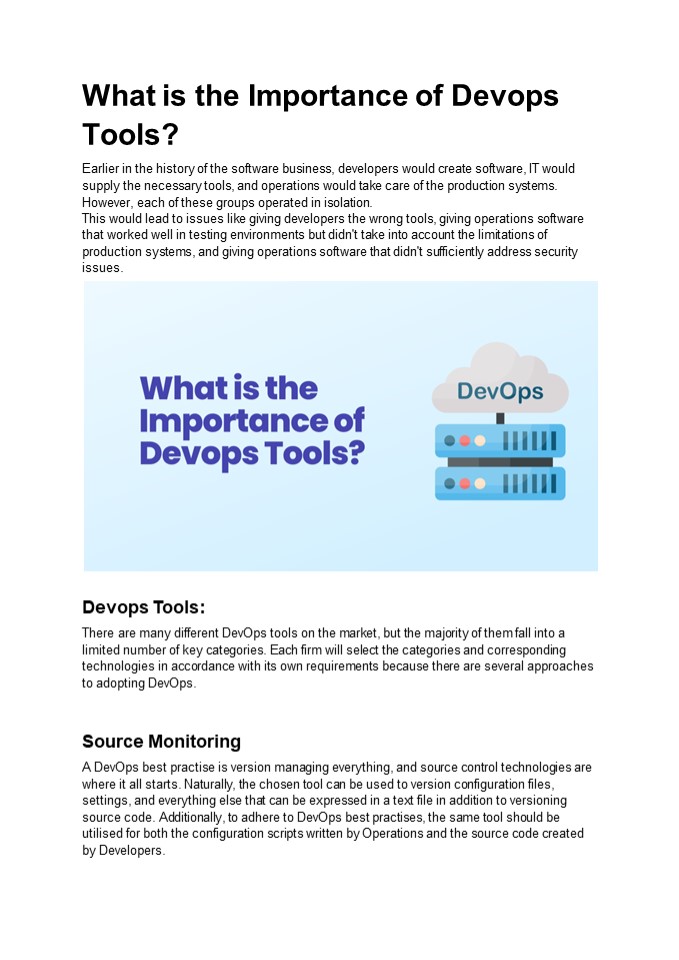Devops tools PowerPoint PPT Presentation
Title: Devops tools
1
What is the Importance of Devops Tools?
Earlier in the history of the software business,
developers would create software, IT would
supply the necessary tools, and operations would
take care of the production systems. However,
each of these groups operated in isolation. This
would lead to issues like giving developers the
wrong tools, giving operations software that
worked well in testing environments but didn't
take into account the limitations of production
systems, and giving operations software that
didn't sufficiently address security issues.
Devops Tools There are many different DevOps
tools on the market, but the majority of them
fall into a limited number of key categories.
Each firm will select the categories and
corresponding technologies in accordance with
its own requirements because there are several
approaches to adopting DevOps.
Source Monitoring A DevOps best practise is
version managing everything, and source control
technologies are where it all starts. Naturally,
the chosen tool can be used to version
configuration files, settings, and everything
else that can be expressed in a text file in
addition to versioning source code.
Additionally, to adhere to DevOps best practises,
the same tool should be utilised for both the
configuration scripts written by Operations and
the source code created by Developers.
2
Pipeline Management for CI/CD Tools for
Continuous Integration and Deployment are
essential to enabling automation, which is the
driving force behind quick and efficient release
cycles. They are in charge of controlling the
full flow of your application while orchestrating
the whole procedure. Testing One of the core
stages of a DevOps lifecycle is testing, and
integrating testing tools with Continuous
Integration enables the test automation required
for DevOps' quick feedback cycles. Deployment
and Configuration Management The environment and
configuration where you are operating the system
and doing testing are created by tools like
Docker, Chef, Puppet, Ansible, and
Terraform. Binary Administration The immense
complexity of managing an organization's
binaries, including both internally generated
binaries and publicly available open-source
components downloaded via the cloud, is
significantly reduced with a repository manager.
Additionally, it accelerates builds, cutting
down on release cycles. It's crucial to Use a
repository management that can be used across
all of your organization's DevOps ecosystems and
is universal and flexible enough to do
so. Monitoring Continuous monitoring is
essential for early failure identification and
quick fix at every stage of the DevOps
cycle. Security Dev Sec Ops puts security
first, and there are technologies available for
each stage of the DevOps cycle. Collaboration
The cornerstones of a DevOps culture are
cooperation and communication. There is a
variety of tools to help with messaging,
ticketing, release planning and more.
3
Conclusion Software development and IT teams can
automate and integrate their processes with the
use of a set of methods, tools, and
organisational principles called "DevOps." It
places a strong emphasis on technology
automation, cross-team communication, and team
empowerment.

